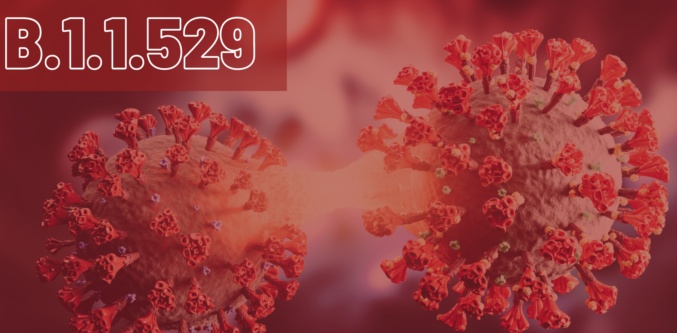What are the symptoms of the new COVID-19 variant Omicron that worries the world?

The Omicron (B.1.1.529) variant of Coronavirus disease (COVID-19) has raised social alarm in recent days due to the reactions it has provoked in several European countries and the United States, where border closures are proposed to control it. This variant is a potential risk greater than that of the alpha or delta variants, which already caused great concern a few months ago due to the doubt of the effectiveness of existing vaccines against these new strains of the virus. The epidemiological situation in South Africa has been characterized by three distinct peaks in reported cases, the last of which was predominantly the Delta variant. According to the World Health Organization (WHO), infections have increased considerably in recent weeks coinciding with the detection of this variant. The first confirmed infection was from a sample collected on November 9, 2021.
Symptoms of the Omicron variant: from extreme fatigue to muscle pain
Variant Omicron is similar to beta, also identified in South Africa. Omicron has unusual but mild symptoms, and extreme fatigue is observed in many cases so far. Those infected with Omicron have another peculiarity with respect to previous strains, and that is that they do not suffer the symptom that until now was clearer to suspect the contagion of COVID-19; loss of smell and taste. Yes, there is an unusual elevation of the heart rate and a very high fever. Other symptoms in those infected with Omicron is muscle pain for a couple of days. The development of the disease is mild. However, it warned of the potential danger of a more pronounced and serious development of the disease among the unvaccinated.
Omicron variant in people vaccinated against COVID-19
There are chances of cases and infections in vaccinated people, though in a small and predictable proportion relative to vaccine efficacy values. Despite the uncertainties, it is reasonable to assume that currently available vaccines offer some protection against severe disease and death.
Global risk of "high" spread of Omicron
The WHO has warned that this variant has a "high" global risk of spread, so it has asked countries to be prepared for its possible consequences. There is a "high" possibility of Omicron spread worldwide and a "very high" possibility of impact, "given the mutations that can confer an immunological escape potential and possibly a transmissibility advantage."
Restrictions begin for the Omicron variant
Many countries have taken radical measures to tackle this new threat. The United Kingdom, the United States, and several European Union states not allowing travelers from South Africa, Botswana, Mozambique, Namibia, Swaziland, Lesotho, and Zimbabwe, while Morocco will not receive international flights in the next two weeks, and Israel has closed its borders to the entry of foreigners.
Omicron symptoms are explained in five points:
- Patients from all age groups (young, middle-aged, old) infected with Omicron strain show extreme tiredness. This is not limited to any age group.
- Patients infected with this variant complained about “Scratchy throat.”
- Patients infected with this strain have not reported a loss of taste or smell, which are known symptoms in patients infected with other strains.
- There is no major drop in oxygen saturation levels. For example, there is a drastic drop in oxygen saturation levels was seen among patients during the second wave of the pandemic in India.
- As per available reports, most of the patients infected with the Omicron variant have recovered without hospitalization.
Click Here To Know more about Omicron variant - What is known about the new COVID-19 variant Omicron (B.1.1.529)? - Dr. Vityala Yethindra










